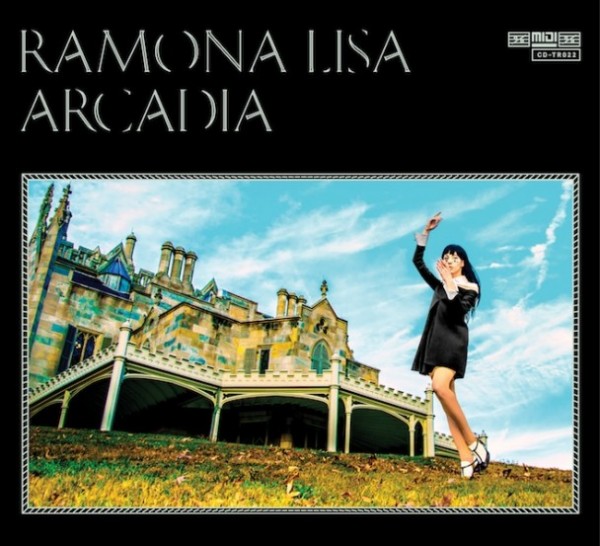Chairlift vocalist Caroline Polachek isn’t an artist you can pin-down. Just when you think you know her, she goes and does something different, like this, her debut solo album, released under the pseudonym Ramona Lisa, a purposeful parody of Mona Lisa. But she was using pseudonyms to play secret shows and debut new material before she transformed into Ramona Lisa, namely Theora Vorbis and Kimsin Kreft. Does this mean she’s been having an identity crisis? Not so much. But you could say she’s been finding herself, as she recorded this album entirely by herself, using only her laptop. She even recorded the vocals with her laptop’s microphone, the music recorded with midi instruments. It doesn’t get much more lo-fi than that. But one gets the feeling Polachek wasn’t looking to create something lo-fi so much as challenge herself as an artist.
The album opens with “Arcadia,” beginning with ominous, maundering synth and the ringing of bells. It’s what you might hear during the opening scene of a Dario Argento movie, as the lead character enters a church where a woman has been ritualistically murdered, a giant pentagram slashed into her torso. Once Polachek’s vocals come into play, it’s only slightly less disturbing; we could be listening to the murdered woman’s voice from beyond. Suffice to say, it’s certainly not what you’d expect to hear from Polachek, but if there’s one theme throughout this album it’s that she’s letting her creativity run wild, not giving a moment’s thought to what people might expect or otherwise want from her.
The opening of the following track, “Backwards & Upwards,” is considerably less disturbing, though there is a dash of melancholy to it. It also has a bit of an industrial vibe, the beats calling to mind Nine Inch Nails’ classic “Terrible Lie.” Once Caroline begins singing, it transforms into something closer to a normal pop song, although you can’t really accuse any of the songs on Arcadia of being normal. It’s true that they generally follow a verse chorus verse song structure, but never does it feel like Polachek is coloring inside the lines. The lines are there, but they often appear to be there just so that she can go outside of them. Meanwhile, she uses every crayon in the Crayola 64 box, often one on top of the other, more or less creating new colors of her own as she goes along.
The fun begins with “Getaway Ride (Cha Cha Cha),” one of a handful of tunes on the album that involve traveling of some sort. Although the synths might sound like something extracted from an ’80’s videogame, the song overall sounds rather futuristic, ripe for a 2025 re-make of Bonnie & Clyde.
The voyage continues with “Avenues,” a light, dreamy track where Polachek’s vocals sound entirely ethereal, almost like a gentle breeze blowing across your face on a warm summer’s day. “I showed you yours, you showed me mine,” she sings, evoking Karen Carpenter. It’s not surprising when we hear the sound of birds chirping as the song concludes.
Elsewhere, “Lady’s Got Gills” comes across the most like a Chairlift song in terms of its fun, bubbly music and sweet melody. It’s easily the album’s catchiest song, both groovy and cool with its constantly changing sounds that will have you feeling as though you’re looking through a Viewmaster reel of aquatic photos when you suddenly stumble upon a mermaid right there with Flipper.
In addition to stretching the limitations of midi, Polachek uses an assortment of field recordings on Arcadia, which are most audible during the delicate instrumental “Hissing Pipes At Dawn (They’re Playing Our Song),” which does, in fact, live up to its name. To say that it’s ambient would be an understatement. It reminds one of surreal Japanese artists like Aureole and Ferri and even abstract artists like aTelecine. But even when Arcadia reminds one of other artists, it only does so in a vague manner, constantly giving one the feeling like you’re hearing something that’s never been done before. Additionally, the songs very much feel like they’re happening right now, as though Polachek is whimsically creating them as your album plays and you can never guess where they’re going to go next as they constantly change directions. The album concludes with a cinematic instrumental called “I Love Our World” and you’ll feel as though you’ve just taken a great vacation, traveling the best of it, by the time it’s done.
One thing is for certain: it’s impossible to know where Polachek will go from here. She could easily score a suspense thriller or she could write an incredible pop record. Or both. You really can’t tell and she surely finds amusement in leaving you feeling that way.


Leave a Reply